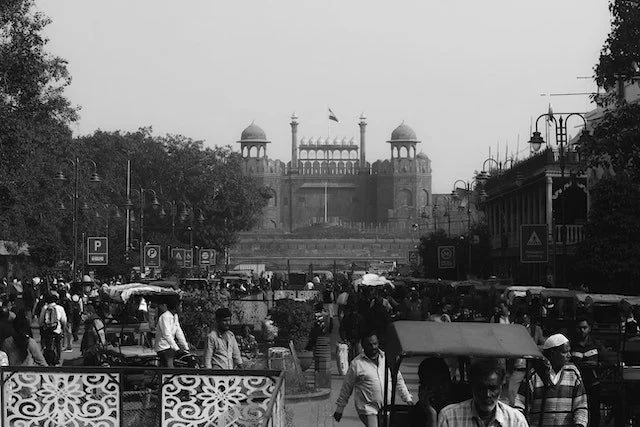New Delhi, the bustling capital of India, has long grappled with severe air pollution, earning the dubious distinction of being one of the most polluted cities in the world. In a bid to combat this pressing environmental issue, authorities have launched the “Red Light On, Gaadi Off” campaign, a novel initiative aimed at reducing vehicular emissions and improving air quality across the city.
The campaign, which encourages motorists to switch off their engines while waiting at traffic signals, represents a proactive approach to tackling air pollution at its source. With vehicular emissions accounting for a significant portion of the city’s air pollution problem, particularly during peak traffic hours, reducing idling time at traffic signals can have a tangible impact on air quality and public health.
The concept behind the “Red Light On, Gaadi Off” campaign is simple yet effective: by turning off their engines when stationary at traffic signals, motorists can minimize unnecessary emissions and contribute to cleaner air in the city. The campaign aims to raise awareness about the harmful effects of vehicular pollution and empower citizens to take action to mitigate their environmental impact.
The initiative has garnered widespread support from various stakeholders, including environmentalists, health experts, and government authorities. By promoting behavioral change among motorists and fostering a culture of environmental consciousness, the campaign has the potential to bring about significant improvements in air quality and public health outcomes in New Delhi.
However, the success of the “Red Light On, Gaadi Off” campaign hinges on effective implementation and enforcement measures. While awareness campaigns and public outreach efforts are essential for promoting voluntary compliance, strict enforcement of anti-idling regulations is necessary to ensure widespread adherence to the initiative. This requires coordinated efforts from law enforcement agencies, local authorities, and community stakeholders to monitor compliance and penalize violations effectively.
In addition to the “Red Light On, Gaadi Off” campaign, New Delhi has implemented a range of other measures to combat air pollution, including the introduction of cleaner fuel standards, expansion of public transportation infrastructure, and promotion of renewable energy sources. These initiatives, combined with concerted efforts to address industrial emissions and crop burning, are essential for achieving sustainable improvements in air quality and public health outcomes in the city.
As New Delhi continues its battle against air pollution, the “Red Light On, Gaadi Off” campaign serves as a symbol of the city’s commitment to environmental sustainability and public well-being. By harnessing the collective efforts of citizens, policymakers, and stakeholders, New Delhi can pave the way for cleaner, healthier, and more livable urban environments for generations to come.




